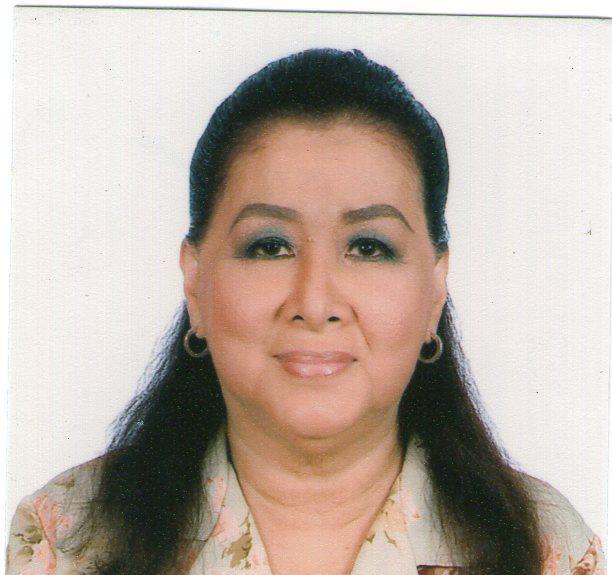Do you have AFib? Are you aware of it? The problem sometimes is that we already have one yet we don’t know we have it, so a yearly reminder was set for September to be the AFib awareness month.
This is cool, right? Why? Because we will be aware of our health and sickness as we continue our journey towards life.
So, Atrial Fibrillation (AFib) Awareness Month is recognized in September to highlight the most common heart rhythm disorder, AFib, its symptoms, and treatment options. This annual campaign aims to educate people about AFib, which often goes undiagnosed, and promote heart health to prevent complications like stroke or heart failure. (https://www.google.com/search?safe=active&oq=AfiB+month+of+September&sourceid=chrome&ie=UTF-8&q=%AFiB+month+of+September&safe=active)
About five years ago, I was diagnosed to have irregular heart beat as shown in my EKG result. That was the time I knew I have AFib… all the while I never thought I have one, since I thought I was healthy. My primary doctor Dr. Donald Siao then explained to me what AFib was and its complications. So, that day, he didn’t allow me to drive to go to the hospital for treatment, because if something happens along the way, he told me he will be responsible because he allowed me to drive despite my diagnosed condition. So, I called my two children (Jayson to drive my car and May to pick me up) and take me to the hospital for further treatment.
The doctor gave me maintenance medicine (Eliquis) and keep on taking sotalol which lasted me to date, with regular checkups, of course, with my cardiologist. He gave me a heart monitoring device taped on my chest overnight and the result as read the following day was just fine.
But there was one time, about three years ago, that it became worse, so my cardiologist, Dr. Adrian Ma, subjected me to electrical cardioversion or catheter ablation procedure. Before the procedure, my brother surgeon and cardiologist Dr. Manuel R. Estioko, retired, residing at Pacific Palisade, Los Angeles had a conversation with Dr. Ma before the electrical procedure was done. It went well and it relieved me for a long time. My brother taught me how to check my pressure by putting my pointer finger and middle finger together at my wrist’s vein and feel the pulse counting 20 times. He told me if I can count 20 times without intervals or interruptions, I’m okay… it’s normal. That was a practical best practice I ever knew.
Last week, however, I felt some symptoms again, so I went to see Dr. Ma. The result of the EKG showed I have irregular heartbeat again after so many years. He prescribed additional medication and scheduled me for stress test via the Insight Diagnostic Technologist Services in San Jose.
What is AFib? My cardiologist explained to me that AFib is the most common type of heart arrhythmia, where the heart beats irregularly. It disrupts blood flow between the heart’s upper and lower chambers. If left untreated, AFib can increase the risk of stroke and heart failure.
Due to its nature as the most common cause of stroke, AFib Awareness Month is very important for us, so we will be aware of our heart condition. In fact, many people are unaware of AFib symptoms or treatment options. I didn’t know it myself until my primary doctor told me. The condition can often be silent, making regular checkups crucial, especially for those over 40. Raising awareness helps with early detection and treatment, improving overall heart health and quality of life.
My cardiologist emphasized the symptoms to watch for such as the following: Heart palpitations, chest pain or pressure, fatigue or weakness, dizziness or lightheadedness, and shortness of breath.
My cardiologist kept on reminding me of the treatment options which include: Lifestyle changes (diet and exercise); medications to regulate heart rate and rhythm; and procedures such as electrical cardioversion or catheter ablation.
AFib is an irregular heart rhythm that increases risk of stroke fivefold and doubles the risk of heart-related death. More than 2.7 million Americans have AFib, according to the Centers for Disease Control and Prevention (CDC), but many go undiagnosed because this condition often has no symptoms. Raising awareness of AFib is important to help prevent this irregular heartbeat and promote heart health. (https://heartrhythmdoc.com/september-is-afib-awareness-month-3/)
Since AFib doesn’t always have noticeable symptoms, it’s important to know the risk factors that can put one at risk. These factors are: Prior heart attack or heart disease; high blood pressure; diabetes; sleep apnea; excessive smoking; alcohol; and prolonged athletic conditioning.
If you display any of these symptoms or risk factors, it is recommended to see a cardiologist or electrophysiologist for screening. Remember, whether you have no symptoms of AFib or have taken steps to treat a risk factor, you are still at an increased risk for stroke and other heart disease. Even if you receive medication, there could already be some damage done to your heart.
In addition, you should be mindful of “triggers”, which are activities that may lead to an episode of AFib. Some people can feel or suspect that they are about to have an episode of the condition, but many people can’t. Either way, it’s important to be aware of and limit potential triggers. Here’s a list of most common AFib triggers: Excessive alcohol consumption; Stress or anxiety; Poor sleep and/or sleep apnea; and Energy Drinks
Due to arrhythmic beating of the heart during an AFib episode, blood can become static in the chambers of the heart. This is because the heart valves are opening and closing too fast for blood to get through, causing the blood to pool in the heart, particularly in the left atrium. When the blood pools, it is prone to form clots, and cause a stroke when the clot reaches the brain. People with AFib are 5 times as likely to have a stroke.
My cardiologist said there’s a simple mnemonic that is known as F.A.S.T, or Face drooping, Arm weakness, Speech difficulty, Time; it’s time to call 9-1-1, that can help you recognize the signs of stroke. Sudden sensations of numbness, confusion, difficulty in seeing or walking, or severe headaches with no known cause could also be signs that you or a loved one is suffering from a stroke.
Remember, AFib is a major cause of stroke! Let’s be aware of that… always!
(Elpidio R. Estioko was a veteran journalist in the Philippines and an award-winning journalist here in the US. He just published his book Unlocking the chain of Poverty: In Pursuit of the American Dream which is now available at Amazon, Barnes & Noble and Xlibris Publishing. For feedbacks, comments, email author at estiokoelpidio@gmail.com).



















